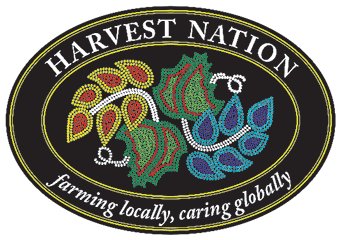Support the Timberjay by making a donation.
Mother-daughter duo seek a change to local food production
VERMILION RESERVATION - A pair of enterprising women on the Bois Forte Reservation are hoping to bring year-round sustainable food production to the Iron Range with the region’s first aeroponics …
This item is available in full to subscribers.
Attention subscribers
To continue reading, you will need to either log in to your subscriber account, or purchase a new subscription.
If you are a current print subscriber, you can set up a free website account and connect your subscription to it by clicking here.
If you are a digital subscriber with an active, online-only subscription then you already have an account here. Just reset your password if you've not yet logged in to your account on this new site.
Otherwise, click here to view your options for subscribing.
Please log in to continue |
Mother-daughter duo seek a change to local food production
VERMILION RESERVATION - A pair of enterprising women on the Bois Forte Reservation are hoping to bring year-round sustainable food production to the Iron Range with the region’s first aeroponics facility.
As with hydroponic or aquaponic systems of food production, aeroponics does not require soil. Instead, the produce is typically grown in tall hanging baskets that are misted with water that is enriched with oxygen and nutrients.
The aeroponic method requires just 10 percent of the growing space and upwards of half the growing time of traditional veggies, with tomatoes growing in as little as 49 days instead of the traditional 85. “Because it is so efficient, you use less resources,” said Danielle Pieratos, who is undertaking the project with her mother Denise.
To sustain the project, the women are reaching out to locally-owned restaurants in area cities, along with institutions on the reservation, to find out about their food needs.
“We want to have community-based sales,” said Danielle.
To gauge how to utilize those resources for the community, Danielle and Denise, sent out 52 surveys late last year to figure out what crops would benefit the area most. The survey not only includes sample crops but asks businesses what they pay on average for produce right now, so the project can figure out a fair price point.
Once the surveys are collected in the coming weeks, the two hope to conduct focus groups with community leaders and food business owners to clarify the next steps the business should take.
Getting to this point hasn’t been easy. Aeroponics remains uncommon in the Midwest, and that means that some insurance companies and business investors have shied away from backing the project, at least initially.
“No one is doing aeroponics right now,” Denise said. “The industry is in its infancy.”
That hasn’t stopped Denise and Danielle, however, and they have been working with consultants at the University of Minnesota-Duluth to help the project get off the ground. The closest match to the Pieratos’ project is a 40,000 sq. ft. aquaponics facility in Faribault, the first of its kind in Minnesota.
The Faribault company now makes millions in revenues after it had its own slow start.
Denise said, however, even though aquaponics has had success in the southern part of the state, she was advised by UMD and insurance underwriters to keep moving forward with aeroponics because there was less financial risk involved.
With the startup challenges in mind, the Pieratos family is working one step at a time on their dream to eventually have their own 20,000 sq. ft. facility in the area.
Their first goal is converting a 900 sq. ft. space in an existing building on their Lake Vermilion property and grow to meet their goal as they are able.
Aside from bringing another locally-grown option to the Iron Range, Danielle said she and her mother want to address other community concerns such as food insecurity.“It’s a human rights issue to access fresh produce in a sustainable way,” said Danielle.
They also hope to have education programs centered around their operation that will increase the awareness of healthy-eating options available to the public.
As the company grows, they hope to increase their efficiency more by utilizing state-of-art management software to determine crop rotations and care. They even plan to bring bees in to the facility to more efficiently pollinate the crops.
Eventually the operation could grow fruits and veggies that have no season in Minnesota, creating cheaper alternatives for both businesses and families to try new and different foods uncommon to local grocery stores.
For now, Danielle said, they are looking at startup costs of around $100,000. That’s pretty low, she said, since the average cost of full-scale farm equipment and land can be much higher. They will be looking at community-based financing as well as investors who share their business philosophy to come on board.
More information on the projects progress can be found at their website, www.harvestnationinc.com.






